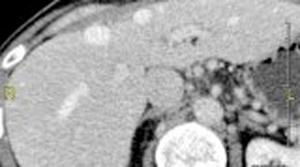Brown-led study highlights liver function
Brown-led study highlights liver function
Rapamycin is an FDA-approved anti-cancer agent and immunosuppressant. Some research suggests it can even combat aging. But rapamycin also targets and inhibits the workings of two related molecular complexes in the liver, with potentially important effects on metabolism. In a study published online recently in The FASEB Journal, a team led by Dr. Philip Gruppuso, professor of pediatrics at Brown and Rhode Island Hospital, looked at what “mTORC2” — the less studied of the two complexes — does in the liver. Working in mice, he and colleagues, including Arthur Salomon and Nicola Neretti from Brown’s Department of Molecular Biology, Cellular Biology, and Biochemistry and researchers at MIT, found that mTORC2 plays a significant role in regulating metabolic functions of the organ by altering gene expression and cell signalling. “It follows that hepatic mTORC2 may serve as a therapeutic target that modulates liver metabolism,” wrote the study’s authors. Considering medicines like rapamycin that suppress mTORC2, they added: “Our results suggest that such inhibitors will have metabolic effects through their actions on mTORC2, and our data provide a context for better understanding the consequences of therapeutic modalities that modulate mTORC2 activity.” The study will be appear in print in January.

###
* The above story is adapted from materials provided by Brown University
** More information at Brown University (Providence, Rhode Island, USA)
______________________________________________________________



















